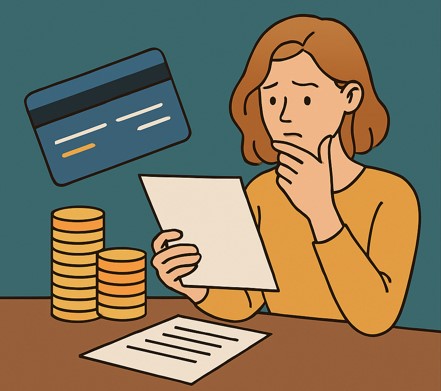To put it succinctly: credit score is the numerical value between you and the bank. This numerical value makes it easier for the bank to get an idea about you. I will explain in detail what you should and should not do to increase your credit rating from 500 to 700.
I would like to say that the credit rating, which shows how regular your payments to the bank are, is one of the most important criteria when benefiting from the bank’s services such as loans.
What You Need to Do to Raise Your Credit Score
If you are having difficulty benefiting from banking services and have a low credit rating, we have listed a few simple but effective methods below. In this way, your low credit rating will increase significantly.
- Making payments on time
- Keeping the credit card limit at a reasonable level
- Paying the debt in full instead of the minimum amount
- Paying bills regularly
- Maintaining the balance of income and expenses
- Keeping used bank accounts open
Making Payments on Time
My payment history makes up 35% of my FICO score, and in the past I have forgotten to pay a few bills. Yes, I cannot change the past, but I can do my best to change this. I now set calendar reminders and automatic payment instructions so I never miss a bill.
Now let’s consider the most important factor of the list I mentioned above – making payments on time: If you are behind on your loan or credit card payments for any reason. This has a negative impact on your credit rating. At least make the minimum payment on your credit card debt. I remind you that the most important factor that negatively affects your credit rating is debt that is not paid on time.
Pay particular attention to this: You pay your loan or credit card debt more than 30 days late. This will remain on your credit report for seven years. However, with regular bill payments, this situation will reduce its effect over time.
I Checked My Credit Reports
The first thing I did was the following: I pulled my credit reports from Experian, Equifax and TransUnion. Best of all, you can get a free report from each bureau once a year through AnnualCreditReport.com I immediately searched for the following and was met with incredible results.
- Overdue payments
- Collection accounts
- False balances
- Accounts I don’t recognize
Surprisingly, there were two errors on my reports – one was a paid loan still showing a balance and the other was a collection I didn’t recognize. I opened disputes and both were resolved within a month.
Pro Tip: Always start by checking your reports. If there is incorrect information, you can improve your score just by correcting it.
Keeping the Credit Card Limit at a Reasonable Level
Irregular payments are one of the biggest reasons for a lower credit rating. The first thing to do to prevent this is to reduce your credit card limit to a level that you can afford. A credit card with a reasonable limit will not tire you while paying your debts in the future and will help your credit rating to reach the 700 level you want.
Paying the Debt in Full Instead of the Minimum Amount
Some months may not add up. Unexpected medical expenses may arise, and we tend to pay the minimum amount of our credit card debt. Unfortunately, this can lead to a lower credit rating. Instead, always pay your credit card debt in full.
Paying Bills Regularly
Paying bills regularly helps improve your credit rating. We regularly pay bills such as communication, internet and electricity bills every month. Giving automatic payment orders from your credit card for these will support your credit rating to increase.
Keeping Used Bank Accounts Open
Another way to improve your credit score is to close unused accounts. Bank accounts with no transactions negatively affect your credit score. Keeping only the accounts you use active will be positive for your credit score.
12 Months Later What Changed and When?
How 12 months of struggle changed my credit score. I am sharing my rough breakdown:
- 1-2. Month: I corrected errors in the credit report (+20-30 points)
- 3-4. Month: I started paying on time (+15 points)
- 5-6. Month: Usage reduced to below 30% (+40 points)
- 7-9. Month: Opened a secured card, received CLI, reached usage below 10% (+60 points)
- Month 10-12: Established a consistent payment history, no new hard inquiries (+50-60 points)
This stability and consistency allowed me to raise my credit score from 503 at the beginning of the year to 704.
Important Lessons I Learned
Don’t try to be perfect to improve your credit score, be consistent. The best thing I have personally learned is to live a consistent life. Because A single unpaid bill or missed loan payment has always bothered me. When I turned this into a lifestyle, I achieved real financial success.
Don’t take small balances lightly, it makes a big difference. Lower your credit utilization rate and your credit score will improve accordingly.
Review your credit report carefully and never ignore it. This is the first place to look if you want to raise your credit score fast, and quickly correcting any negative or inaccurate information written here will raise your score.

